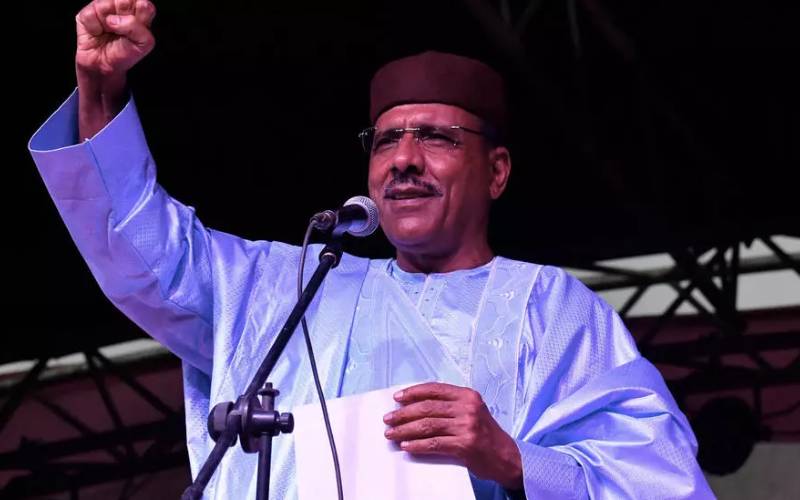No to coup in Niger
There were reports of heavy and sustained gunfire around the presidential palace in Niamey, the capital of Niger Republic, in the early hours of Wednesday, April 31, 2021. Apparently, the intention was not just to scuttle the inauguration of President-elect Mohammed Bazoum which was to take place in a couple of days, the attempted coup […]

Niger’s Mohamed Bazoum sworn in as president
There were reports of heavy and sustained gunfire around the presidential palace in Niamey, the capital of Niger Republic, in the early hours of Wednesday, April 31, 2021. Apparently, the intention was not just to scuttle the inauguration of President-elect Mohammed Bazoum which was to take place in a couple of days, the attempted coup was also to overthrow the outgoing government as well as the democratic order in Niger.
Thankfully, loyal troops repelled the attempt and order was restored before further damage could be done to the country.
- After Daily Trust story: Buhari fires IGP Adamu over poor management, escalating insecurity
- Osinbajo absent as Dare opens 2020 National Sports Festival
Niger had gone through a tension soaked presidential election which pitted the former President of the country, Mahamane Ousmane, against the former Interior Minister, Mohammed Bazoum.
At the first round of elections, both candidates could not secure an outright win, a development which necessitated a runoff between Ousmane and Bazoum, the two leading candidates. Bazoum won the runoff which was rejected by Ousmane who alleged fraud.
Bazoum’s victory at the polls was confirmed by Niger’s highest court paving the way for him to be sworn in as the next President of Niger.
In protest against the outcome of the results, Ousmane had called peaceful demonstrations across the country which the authorities quickly clamped down on.
Whatever the reasons and motivation behind the attempted coup, overthrowing a democratically elected government is not the way to go. Coup can only compound the problems of Niger.
Niger is considered the poorest country in the world and has gone through several coups in its history. The country is also facing the scourge of insecurity by terrorist groups notably Boko Haram and ISWAP.
Although the elections were not perfected, they met the minimum requirement by independent election monitors and observer groups who covered it. And the fact that a runoff was called after the first ballot in which a clear winner did not emerge, was an indication that the electoral authorities intended to provide a level playing field for the candidates. Also, with the election disputes going for adjudication to the highest court in the land, it can be safely concluded that all matters concerning the election and its outcome met the standards required of a free and fair election.
Significantly, this is the first civilian-civilian transition to power in Niger, which is a welcome development in a country that has been ravaged for so long by insecurity, instability and all-around underdevelopment.
It is therefore condemnable that as Niger is turning around the corner, some elements in the country are trying to scuttle this salutary democratic development.
The elements in the military in Niger should bear in mind that coups and violent changes of government are no longer fashionable in the world and will draw the ire of the international community whose support the country desperately needs to face its development challenges.
Already, the attempted coup has drawn the condemnation of African and world leaders. President Muhammadu Buhari strongly cautioned those behind the action against destabilising Niger and to allow the democratic wishes of the people to prevail. Similar messages have come from the Economic Community of West African States (ECOWAS), the regional body to which Niger belongs. The African Union(AU) also weighed in with its words of condemnation.
Rather than seek to overthrow a democratically elected government and truncate a democratic process of transition to power, the military should instead concentrate its energy on tackling the insurgency and general insecurity in the country.
The Niger military should also support the in-coming government tackle poverty and deliver the dividends of democracy to the people of the country who made their choice through the ballot in the just concluded elections.
